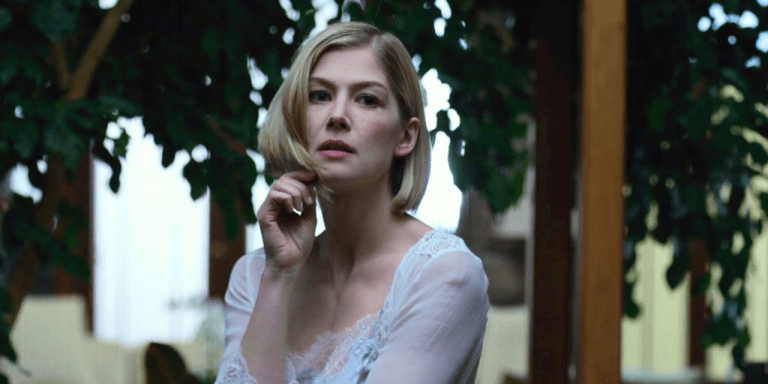There is much mystery surrounding the word ‘narcissist’ and the behaviors that embody it, with many of us completely unaware until we experience it ourselves. Lovebombing, gaslighting, the silent treatment… What are they? How do we know when they’re happening? Imagine the heartache we could save ourselves if we were able to recognize the signs sooner.
Stage 1: Pressure to commit
When the relationship begins, you literally can’t believe your luck. Every insecurity you have is seen, recognized, and proved wrong. You’ve finally found someone who wants a relationship as much as you do. Someone who doesn’t play games, who rings when they say they will, and wants to see you as much as possible. They make an effort to get to know you, to talk to you, and to compliment you. They might talk about the long term – things like holidays, marriage, moving in together. It’s literally a whirlwind.
This can sometimes feel a little intense. You might have children who need your attention, a busy job, or other commitments, but you’re spending 90% of your time in contact with your new partner. Although you don’t want to hurt their feelings, you might explain that it’s all moving a little too fast and that you can’t be in constant contact all day every day. You might say that you want to take things slowly until you’re sure. That’s perfectly reasonable, and should be respected. If someone keeps pushing you to go faster than you’re capable of or feel comfortable with, it’s worth considering why that’s the case.
Stage 2: Something just feels off
Many people who turn out to exhibit unhealthy behaviors are intelligent and highly charismatic, which is probably why so many people are captivated by them. Yet although everything looks perfect on paper when you get into a relationship with them, something feels off. This isn’t always due to a problem with your partner — sometimes it can point to old wounds that need to be addressed, so identifying whether your intuition is warning you about a genuine problem can be difficult. But it can be done. If you want to get out of the relationship at this point, that’s completely up to you — don’t let anyone pressure you into staying. But if you want to see where it goes, take things at your own pace and wait to see if red flags occur. If they do, you should probably listen to your gut at this point or make a decision about whether or not to carry on based on the appetite of your partner to discuss and work on any issues.
Stage 3: A sudden change in your partner
As you finally started to let your guard down, relax, and trust that your partner was everything they said they were, you might start to fall in love. In unhealthy relationships, this can unfortunately be when you’ll start to see a change in their behavior towards you.
They seem colder, less interested. Phone calls, texts, and physical affection will probably reduce significantly, and they might start to be replaced with something more negative.
The first time it happens, it’s so subtle that you second guess yourself. It might be a hurtful comment disguised as a joke, a long, lingering look at – or a comment about – someone else, or a criticism for something you have or haven’t done. You’ll probably tell yourself that your partner didn’t mean it.
Perhaps you shouldn’t have talked to that guy/been so quiet/said something when he forgot you were meeting. You might find yourself asking Google for advice because you feel like your friends won’t see him in the same way if you share this with them. And anyway, it’s probably a one-off.
Stage 4: Confusion
You appear to have gone from being with someone sweet and considerate to someone who is increasingly cold and disinterested.
You’re now confused about the negatives and craving the positives. Having fallen for the person you thought your partner was by that point, you’ll cling on because the hugs and compliments — however rare — flood you with relief. They’re the glimpse of the person you know your partner to be.
Please know you’re not stupid. You haven’t done anything to flip them from one version of themselves to another. In a normal relationship, your partner would sit down with you and discuss any problems calmly. In unhealthy relationships, that doesn’t happen, which is why this stage can feel like you’re going insane.
The result is something called cognitive dissonance, where you frantically try to reconcile the two very different versions of reality you’re experiencing: one where you’ve met someone wonderful who you see a future with, and one where you feel deeply uncomfortable and like you’re losing yourself. What can make it even harder to trust what your intuition is screaming at you is that your family and friends think your partner is perfect for you too. How can everyone be wrong?
Stage 5: Feeling crazy
By now, you might have graduated from jokes disguised as insults to outright nasty comments, which you’re still told are jokes but are blatantly, painfully not. You feel like the person who not long ago worshipped the ground you walked on is buried beneath this new, colder version. And of course, you try to talk about it with them. Maybe you manage to keep your composure – maybe you’re so distraught that it comes out as tearful or needy. Either way, what you get back does little to reassure you, and everything to further compound your general feeling of craziness. The response may be indifference or even derision. Or worse still, a calm counter-attack which suggests that this change in behavior is your fault. Maybe you’ll get accused of being a psycho and told this is all in your head. This is also known as gaslighting.
As well as minimizing your feelings, gaslighting makes you question reality. You veer from one version of events to another and feel like you’re the one at fault. You might end up apologizing frantically and saying you’ll change. You tell yourself that in the future, you’ll be more careful about what you say to save yourself that awful ache of regret when everything gets turned back around onto you. You probably question whether you should have said anything at all, and eventually, you might just stop bothering. You’re still in love with your partner – their approval is everything to you — yet you feel like your relationship is literally sucking the life out of you. And that must be your fault.
Stage 6: Silent treatment
Sometimes the consequence of trying to have a discussion with someone or share your feelings is the silent treatment. Although it can feel like you’re the only person this has happened to, it’s actually a very common technique abusive people use to punish and exert control.
When you first realize you’re being ignored by the person you love, you feel shock, and the days and sometimes weeks that follow are absolute torture. If you compare this with the start of your relationship where your partner was probably texting and calling you incessantly, it’s hugely debilitating. Completely bewildered, you often don’t know if you’ll even hear from them again. You might repeatedly try to engage with them or you might just hope that they’ll forgive you and get back in touch soon. Either way, you’ll probably feel it’s your fault that your partner has disappeared. You might even ask whether you’re the toxic one. After all, nobody can do this to someone without good reason.
Stage 7: The vicious circle
Toxic relationships can be over as quickly as they started. You might stop making contact with your partner and accept that although you weren’t formally told, your relationship must be over. As the weeks pass, although you’re distraught, you might start to try to get on with your life; go to the gym, get out with your friends, throw yourself into your work. The feeling of desolation doesn’t leave you, but you start to be able to function.
Then, out of the blue, you’ll get a like on social media, or maybe even a call. And you’re back to square one. They couldn’t live without you after all! And they’ll probably tell you that’s the case. You’re flooded with relief, but it’s worth being cautious at this stage, because in some cases, your partner hasn’t missed you – they’ve missed what you can do for them or something about you getting on okay without them has dented their ego.
Stage eight: Discard
Unhealthy relationships generally make us feel uncomfortable, either because the partner wants you too much or because they don’t want you enough. There is no in between. The discard phase is at the latter end of the scale. The criticism and inappropriate comments will start up again. And maybe this time, because you’ve figured out that it’s not normal, you’ll start challenging the multiple ways in which your partner makes you feel like a smaller, more inadequate version of yourself. Although you’re probably still in love with them, you start to see them as more of a human being. In healthy relationships, both parties recognize flaws and accept that no one is perfect. In unhealthy ones, someone is usually placed on a pedestal. When you’re no longer enthralled and entranced, you can sometimes get discarded. You may have spent much of the relationship feeling like every conversation might be your last one, and this time, you’re right. It might not feel as horrible as the first, second, or third time you received the silent treatment, or it might feel worse because this time you know you’re past a point of the relationship being viable. You might even feel relieved. Either way, at least now you’re free.
Stage Nine: Recovery
This isn’t a normal break up because there’s often no closure. Before you can philosophize and mourn the loss of someone, you have to try to understand what – and who – it is you’ve lost. You find yourself trying to process what on earth you’ve just been through, something that can take a really long time. Why do you feel like a shadow of yourself? Was it your fault that it ended? Have you imagined it all?
You might have been told by your partner that there’s something wrong with you, but if someone tells you you’re toxic and you feel deeply upset and worried, it’s highly likely that you’re not. Truly toxic people lack the ingredient we all need to care and love normally: empathy. Which means they’re incapable of taking any responsibility for the stuff they need to work on. In your case, you probably owned and apologized for the part you played in the failure of the relationship and tied yourself in knots to please the person you loved and get things back on track. But it may have been met with indifference, which means you’re now left with a huge burden of responsibility. Please ask yourself whether it’s all yours to carry.
If you’ve experienced the silent treatment more than once, maybe you’re still waiting for your partner to reach out and rekindle the relationship (and hating yourself for it).
Or you may be feeling foolish and naïve that it took you so long to spot the signs that your relationship was unhealthy.
Whatever you’re feeling, please know that this is not your fault. Abusive people can be highly intelligent, and many seek out partners with a caring, trusting nature. Priming someone for abuse isn’t just cruel and calculating, it’s also incredibly skilful. It has little to do with lack of intelligence in the victim; it’s about an innate ability to use a person’s own emotional intelligence against them. That’s pretty dark stuff, and quite a lot for someone who just wants a loving relationship to go up against!
It’s also normal to still love and miss someone despite all of the above. But if you’re reading this and can relate to it, please try and turn that love back on yourself where at least it won’t be wasted, taken for granted, or abused.
And save it for someone who is capable of loving you back.






